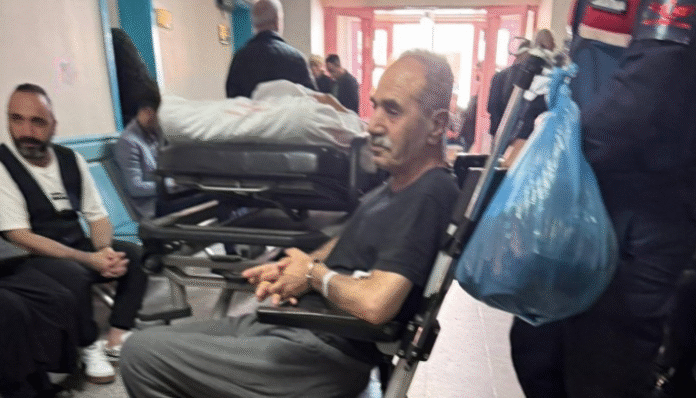Turkey’s Council of Forensic Medicine (ATK) has again ruled that 73-year-old Mehmet Emin Çam can remain in prison, rejecting calls for his release on medical grounds, despite multiple serious health conditions, the Mezopotamya news agency reported.
Çam, a former provincial chair of the now-defunct Peace and Democracy Party (BDP), is listed as a seriously ill prisoner by the Human Rights Association (İHD). He suffered a stroke that left his left side paralyzed, has a brain tumor and chronic kidney disease and has undergone multiple surgeries. He is also visually and hearing impaired and has experienced several heart attacks in prison in the last fewyears.
On April 22 Çam’s lawyer, Nezahat Celen, filed a petition with the Batman Chief Public Prosecutor’s Office seeking a suspension of his sentence due to the life-threatening risk posed by his deteriorating health and advanced age.
According to Law No. 5275, the sentence of a prisoner who due to a serious illness or disability is unable to manage life on their own under prison conditions and who is not considered a serious danger to society may be suspended until they recover. However, the stipulated suspension of sentence is often not implemented.
Following the petition, Çam was referred to the ATK for evaluation. After reviewing his case on May 21, ATK’s 11th Expert Committee concluded that Çam was not “incapacitated due to old age” and determined he was able to “sustain life on his own,” effectively blocking his release.
In response to the ATK’s decision, Çam’s family appealed to Newroz Uysal Aslan, an MP from the pro-Kurdish Peoples’ Equality and Democracy Party (DEM Party) and member of the parliamentary Human Rights Committee.
In a formal request to the committee, Aslan criticized the ATK’s assessment as “medically inaccurate and degrading to human dignity.”
The appeal emphasized that the ATK’s ruling downplayed the severity of Çam’s condition and described the decision as both scientifically unsound and politically motivated. “By claiming he does not meet the criteria of being ‘incapacitated,’ the ATK not only renders the term meaningless but also instrumentalizes medical evaluation to uphold a punitive penal system,” the statement said.
The family also urged that independent medical experts be allowed to assess Çam’s condition.
Çam was first arrested on December 12, 2012, as part of a widespread crackdown on the Kurdistan Communities Union (KCK), a Kurdish political umbrella group that Turkish authorities accuse of links to the outlawed Kurdistan Workers’ Party (PKK). After spending 10 months in pretrial detention, he was released but later sentenced to nine years in prison for alleged membership in a terrorist organization. Turkey’s Supreme Court of Appeals upheld the conviction, and he was sent back to prison on March 14, 2022.
In April 2025 he was diagnosed with a brain tumor and later suffered another heart attack. He was hospitalized for an angioplasty on April 16 and returned to prison just days later. His legal team has submitted multiple requests for sentence deferral, all denied, largely based on previous ATK reports declaring him fit for incarceration.
Turkish authorities have frequently been criticized for their systematic disregard of the health needs of prisoners. Every year rights groups report the death of dozens of sick prisoners, either while behind bars or shortly after their release, which often comes at the end-stage of their illness. Turkey recorded 709 deaths in prison in the first 11 months of 2024, according to data from the Ministry of Justice shared in response to a parliamentary inquiry.















